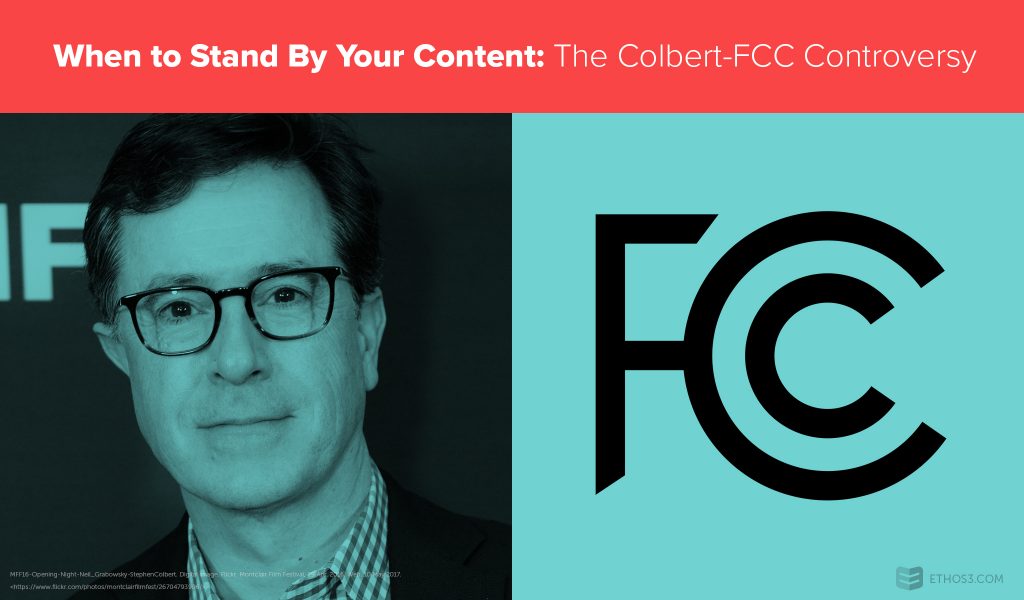
While Stephen Colbert is riding high on a ratings boost since he turned The Late Show into a brutal commentary on the White House, Colbert is also finding himself at the center of a controversy. The comedian has received widespread criticism for a crude joke he made against President Donald Trump. Now, the Federal Communications Commission says they will review Colbert’s joke. The FCC Chairman Ajit Pai says he has watched the video and “as we get complaints – and we’ve gotten a number of them – we’re going to take the facts that we find and we are going to apply the law as it’s been set out by the Supreme Court and other courts and we’ll take appropriate action.” To be clear, the FCC reviews every complaint they receive so this is nothing new or shocking for the agency.
Meanwhile, Colbert has not backed down from his takedown of President Trump. The following day, Colbert opened his show saying he had no regrets about his comments on the president, but did say he would have changed “a few words that were cruder than they needed to be.” Colbert has not made a statement about the FCC review, but he has gotten support from the Writer’s Guild of America East and West. Plus, the law appears to be on his side. According to USA Today, The Late Show airs during “safe harbor” hours, or a time when children are not expected to be watching television. This protects our first amendment, free speech rights for adults while protecting children from mature content.
Audiences seem to be torn between whether or not Stephen Colbert should stand by his content, or make an apology. As a presenter, there is a fine line between standing up for yourself and taking responsibility for your words. So, when should you stand by your content?
FACTS
If you have the evidence to prove your claims to your audience, then keep that trick up your sleeve for any nay-sayers. Especially in today’s society, where facts are treated the same as opinions. It is important to stand by your factual information to uphold the integrity of your entire message.
JUSTICE
Sticking up to bullies or defending a cause are times when you should not back down from your content. As a presenter, you stand by your message to keep it strong and durable. If you flip-flop on your stance, you could risk losing your audience’s trust.
ORIGINALITY
If you are presenting a new idea for a business or product, this is another time when you should defend your content. Viewers may cast doubt on if your idea will work or be successful. It’s important to be open to criticism, but don’t abandon your original ideas for the status quo.
Should Stephen Colbert back down from his nightly presidential takedowns? Well, judging by the success of his show, he probably won’t despite whatever others believe. And CBS hasn’t shown any signs of interfering with Colbert’s approach. This experience was probably a learning lesson for Colbert for how far he can push his content. But technically, no laws were broken and nobody lost their job. For presenters, it’s best to proceed with caution when talking about touchy subjects like politics and religion. But if you truly believe in your message, stand by your content.
More from the Ethos3 Blog:
Presentation Persona Spotlight: Stephen Colbert
How Changing Your Content Can Make You A Leader
Presentation Lessons From Jon Stewart
